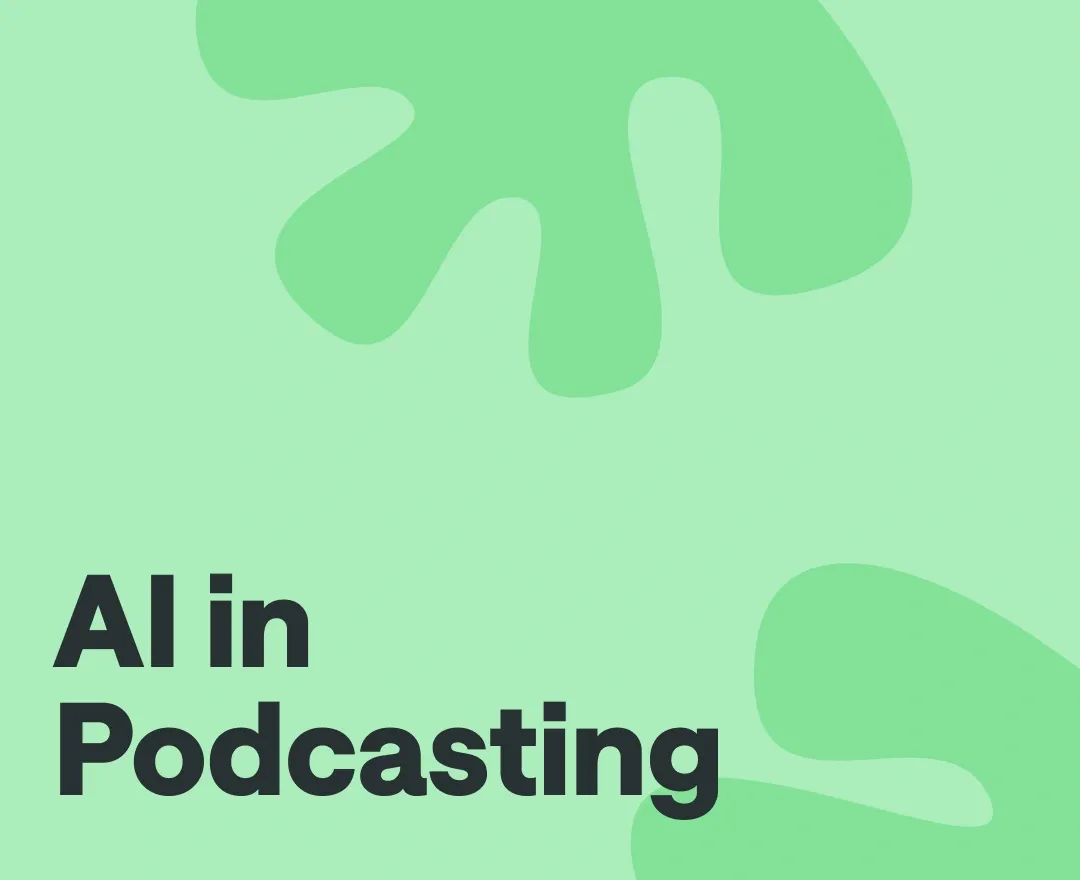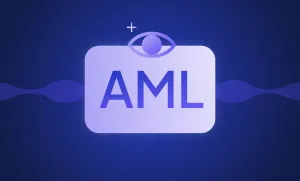Podcasting has become one of the most popular forms of media consumption in recent years. It offers an easy and convenient way to consume content while on-the-go, making it a great choice for busy people who may not have time to sit down and watch or read something.
However, podcasting is quickly becoming even more convenient with the introduction of artificial intelligence (AI). AI in podcasting can help make podcasts more interactive, personalized, and engaging for listeners. This article will explore how AI is transforming podcasters' ability to create compelling content that resonates with their audience, as well as its potential implications for the future of podcasting.
So let's dive straight into it!
What is AI?
AI is a form of computer technology that can "learn" from data, enabling it to make decisions and solve problems. AI has made its way into many aspects of our lives, including smartphones, personal assistants such as Siri and Alexa, self-driving cars, medical diagnoses, and more.
Here are some interesting statistics about AI:
- 97 million new roles will be created by 2025 as humans, machines and algorithms increasingly work together
- AI driven podcasting already reaches 45 million Americans each month
- AI powered podcasts have grown 500% in the last year
- AI can reduce costs for podcasters by up to 50%, while increasing overall engagement and listener satisfaction
- AI enabled podcasting will be a $3 billion industry by 2023
But exactly what role can AI play in podcasting? Let's take a look.
How AI Is Transforming Podcasting
Here are severalways AI is and will be used in podcasting now and in the future:
1) Personalized content generation
Personalization of content is one of the main advantages of AI. AI can be used to generate personalized content for each individual listener. AI algorithms can detect the type of content that each user prefers, making it easier for podcasters to tailor their content accordingly. AI-powered podcast creation platforms such as Audioburst and Atomiton are already being utilized by many big brands in order to create more engaging audio experiences for their listeners.
2) Voice recognition AI
What is voice recognition? AI-powered voice recognition technology can be used to detect emotions, accents, and even parts of conversation that may be important for a podcast episode. AI can also be used to detect when certain words are being spoken, allowing podcasters to quickly and easily search through their recordings in order to find and edit specific parts. And once podcasters are able to accurately transcribe their episodes, they can generate SEO-friendly content that's more likely to show up in search engine results.
3) Dialogue recognition
AI technology can also be used for automatic speech recognition and as a tool to detect dialogues between two or more people. AI-powered dialogue recognition technology can analyze large amounts of audio data, enabling it to recognize conversations and detect the emotions behind them. This technology can then be used to generate personalized recommendations for podcast episodes based on a listener's preferences and interests.
4) Interactive podcasting
Interactive podcasting is becoming more popular, allowing listeners to engage in conversations with AI-powered chatbots. AI can be used to recognize dialogue and respond accordingly, thus creating an interactive experience for the listener. AI-powered podcast platforms such as Lumen AI are already being used by podcasters to increase engagement and add new elements of interactivity for their shows.
5) AI generated transcriptions
Natural Language Processing (NLP) is a remarkable branch of Artificial Intelligence that enables computers to understand, analyze and generate human language. Applied in podcasting specifically, NLP and speech-to-text technology could be used for transcribing audio into text format automatically, creating subtitles or captions for viewers with hearing impairments as well as analyzing the sentiment within the content discussed on any given show.
6) Audio editing
AI algorithms can be used to automatically edit audio files, for example, by removing background noise or adjusting the volume levels of different speakers. This could potentially be useful in the podcasting industry for improving the overall sound quality of a podcast episode. In other words, used correctly, AI in podcasting can also make editing way more quicker and easier.
What software is best for audio editing?
We say that for unleashing the true power of AI in podcasting the best audio editing software is Podcastle. Packed with AI-powered features and tools, it makes audio editing quick, easy and fun. Some of its most notable features include:
1) Automatic background remover
2) AI voice clones
3) Silence remover
4) Automatic transcriber
5) Auto-leveling feature and more.
Main Advantages of AI in Podcasting
AI has the potential to revolutionize the podcasting industry by helping podcasters create more engaging content and providing listeners with personalized experiences. AI-powered solutions can help reduce some of the menial tasks associated with podcast production, as well as improve sound quality and enable better searchability. Advantages include:
Reducing the menial tasks associated with podcast production.
AI-powered solutions such as audio editing, AI-generated transcriptions, and interactive podcasting can take some of the burden off of podcasters, giving them more time to focus on creating content.
Improving the show's sound quality and accessibility
AI can also improve the overall sound quality of a podcast episode by automatically adjusting volumes or removing background noise. AI-generated transcriptions can also be used to improve accessibility, as well as enable better searchability for podcasts.
Creating personalized experiences
AI-powered solutions can help podcasters tailor their content to individual listeners based on their interests and listening habits. AI algorithms can also be used to target advertisements, helping podcasters monetize their content in new ways.
So if you want to take your show to the next level this year, you should start using AI in your podcasts! It will help to enhance your episodes and will make your job much easier. Good luck!








